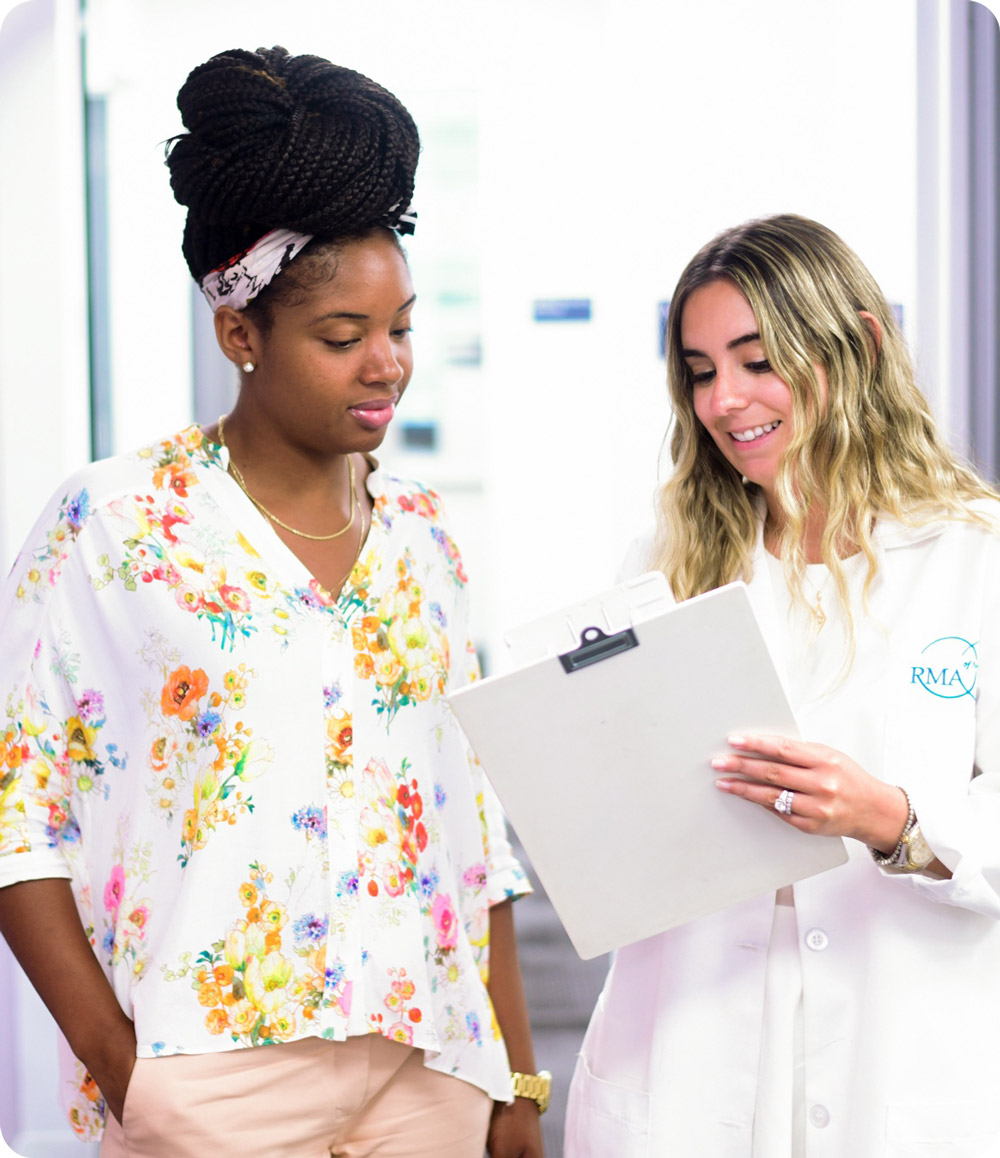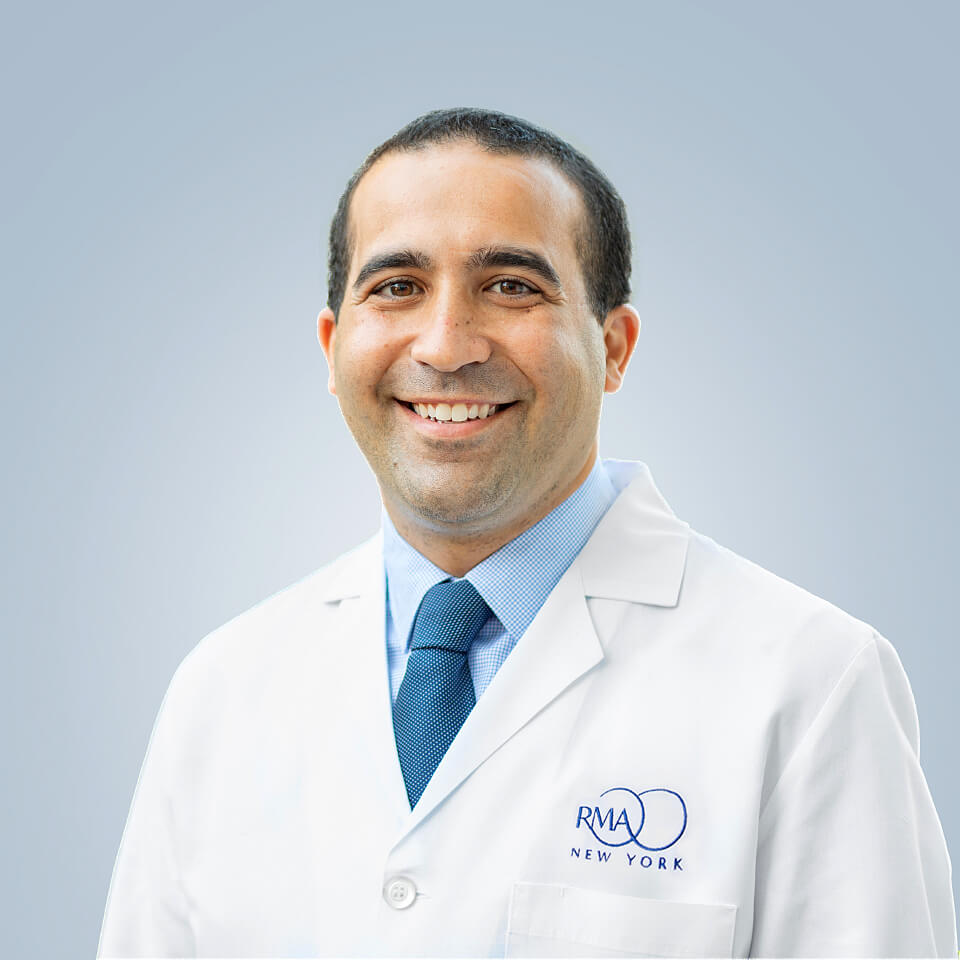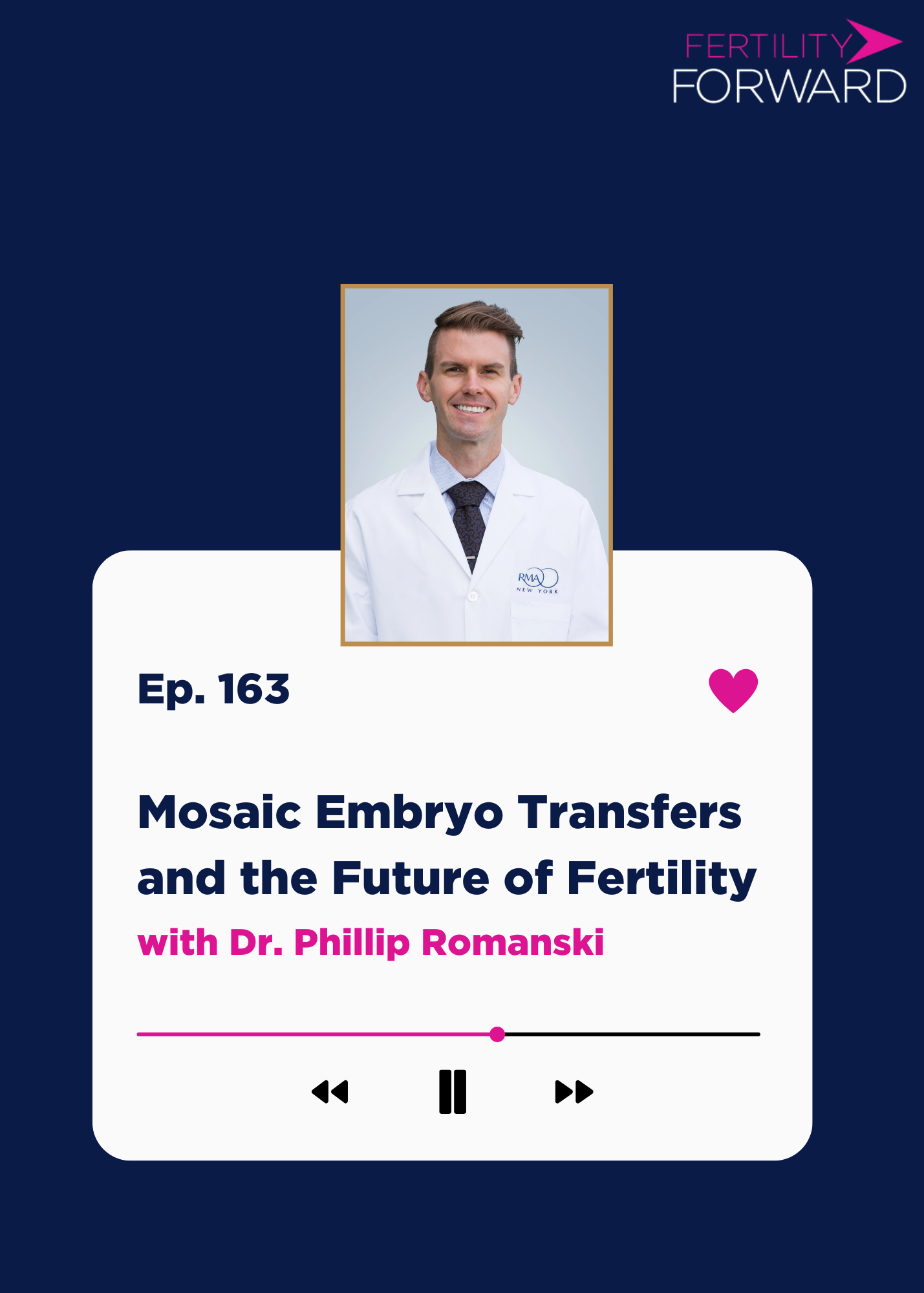
An IUI cycle may be natural (unmedicated) or medicated, also known as an ovulation induction (OI) cycle. A medicated IUI cycle may include oral medications, such as Clomid or Letrozole. These medications stimulate the ovaries to ovulate if a woman does not do so on her own or to produce more than one egg in a given cycle.
Timing insemination around ovulation is critical for achieving pregnancy success. In order to determine when you will ovulate, you and your physician will monitor your cycle using either ovulation predictor kits (OPKs) at home or by coming into the office for transvaginal ultrasounds. The OPKs help your doctor detect the natural surge in luteinizing hormone (LH) before ovulation. The transvaginal ultrasound looks for a growing follicle (which contains the egg). When the follicle reaches the right size, an additional medication called Ovidrel is used to trigger ovulation. Most IUIs are performed within 24-48 hours after the LH surge is detected or Ovidrel is given.

During IUI, fresh semen from a male partner or frozen sperm from a partner or sperm donor go through a process known as sperm washing. Sperm washing helps to ensure that only the highest quality sperm are used during the procedure, by separating the strongest, healthiest sperm from the seminal fluid. Once separated, these high-quality sperm are isolated into concentrated batches. The sperm washing process takes approximately 1-2 hours to complete. Using a sterile medium, the sperm can be safely stored for up to 24 hours in a laboratory incubator (frozen washed sperm can be stored for years).
During the IUI procedure, a speculum is placed in the vagina and, using a thin catheter, the concentrated sperm solution is transferred into the top of the uterus (where the fallopian tubes enter). The patient experience is often described as being comparable to a PAP smear. While there may be some mild discomfort due to the speculum, the patient is unlikely to feel the catheter as it enters the uterus. Some patients may experience mild cramping following the IUI.
Once the procedure is finished, you will be asked to remain in a relaxed position for at least five minutes. Patients are able to resume normal physical activities, including sexual intercourse, on the same day as the procedure. Two weeks after insemination, the patient will be asked to take a pregnancy test.
IUI FAQs
There are many factors that influence the success rate of IUI, including your age, cause of infertility, and whether medications are used to induce ovulation. A medicated IUI cycle puts your chance of pregnancy at about 1 in 5, which is the same as natural conception. We recommend you speak with an RMA of New York fertility clinic physician or member of our care team about the best fertility treatment options for you.
An IUI cycle takes around four weeks, the length of one menstrual cycle. During the first two weeks, you will either track ovulation at home using ovulation predictor kits (OPKs) or come into the office for bloodwork and transvaginal ultrasounds to help your physician determine the timing of ovulation. When a follicle containing the egg reaches the right size, a medication called Ovidrel is used to trigger ovulation. The IUI is performed 24-48 hours after the trigger, and a pregnancy test can be taken two weeks later.
IUI is considered a low risk procedure. If you undergo a medicated cycle, you may experience side effects similar to menstruation or pregnancy, such as mood swings, pelvic discomfort or cramping, and bloating. A medicated cycle may cause the release of multiple eggs, which can increase the chances of conceiving multiples.
Yes. Not all patients require fertility medications, but medications can increase the chances of ovulation and releasing multiple eggs. A medicated cycle, or ovulation induction (OI) cycle, may include oral medications such as Clomid or Letrozole. These medications stimulate the ovaries to ovulate if a woman does not do so on her own, or to produce more than one egg in a cycle.
Depending on a patient’s age and fertility status, your physician may recommend as few as one or as many as six or more IUI cycles before moving on to IVF.
We perform IUI procedures at our office. You’ll lay on an exam table, and a speculum is placed in the vagina. A thin catheter, which you’re unlikely to feel, is used to transfer the concentrated sperm solution into the top of the uterus. You’ll be asked to remain in a relaxed position for 5-15 minutes. Patients often describe the procedure as being comparable to a PAP smear, and there may be mild cramping and spotting following the IUI. You can resume normal physical activities, including sexual intercourse, on the same day as the procedure.
Intrauterine Insemination (IUI) is often recommended as the first step in a fertility journey, given it is less invasive and more affordable than IVF. It is a good option if you have been diagnosed with unexplained infertility, are in a same-sex partnership using donor sperm, if your partner is experiencing male infertility, or you intend to be a single parent. However, success rates are higher with IVF than IUI, especially for women over 40 and those who have more complex fertility issues. For that reason, it is recommended that some patients begin with In Vitro Fertilization (IVF) treatment as their first step. Your RMA of New York physician will make a recommendation based on factors including your age, fertility status, and any diagnoses.
An unmedicated IUI cycle does not increase the chance of having multiple births. When you combine an IUI cycle with fertility medication, however, you’re more likely to release multiple eggs during ovulation, which can increase the chance of more than one egg being fertilized.
IUI can be a good option when sperm count is low, when sperm quality, sperm mobility, or ejaculation problems are a concern, or when using donor sperm. Sperm undergoes a process known as sperm washing, which ensures that only the highest quality sperm are used during the procedure. For men facing more severe fertility issues, IVF may be a better treatment option.
IUI cycles are covered by some insurance plans. Other plans may cover a portion of the IUI cycle, such as monitoring visits or medications. RMA of New York partners with insurance providers and financial institutions to offer a variety of services and resources to help you achieve your goal of building your family. We have a dedicated finance team to ensure you have a clear understanding of the various expenses and fees that impact the total cost of your fertility treatment.

Why RMA of New York: IUI
RMA of New York serves as the Division of Reproductive Endocrinology and Infertility at Mount Sinai Medical System. Our laboratory team is dedicated to scientific discovery, graduate medical education through RMA of New York’s REI Fellowship Program, and individualized care that focuses on you.
Our team of embryologists are consistently recognized as innovators in reproductive science and medicine, and security and safety standards. RMA of New York has been at the forefront of embryo freezing technology and cutting-edge research, helping countless individuals and partners achieve the dream of building a family.
Featured Resources
![Ep 163: Mosaic Embryo Transfers and the Future of Fertility with Dr. Phillip Romanski]() Podcast
PodcastEp 163: Mosaic Embryo Transfers and the Future of Fertility with Dr. Phillip Romanski
How can data enable doctors to best support their patients? Reproductive endocrinologist and …
Read More![Endometriosis: Causes, Symptoms, and Advanced Care in NYC]() Blog
BlogEndometriosis: Causes, Symptoms, and Advanced Care in NYC
Endometriosis is a condition that affects the female reproductive system and occurs when …
Read More![News 12: Women's Health Screenings By Age]() News & Press
News & PressNews 12: Women's Health Screenings By Age
Dr. Anate Brauer sat down with News 12 to discuss the importance of health screenings and which …
Read More
Get Started
It’s never too early to learn about your fertility and reproductive options.
Have questions?
We can help.
Patient-centric reproductive medicine is our specialty, and we look forward to answering any questions you may have.



























